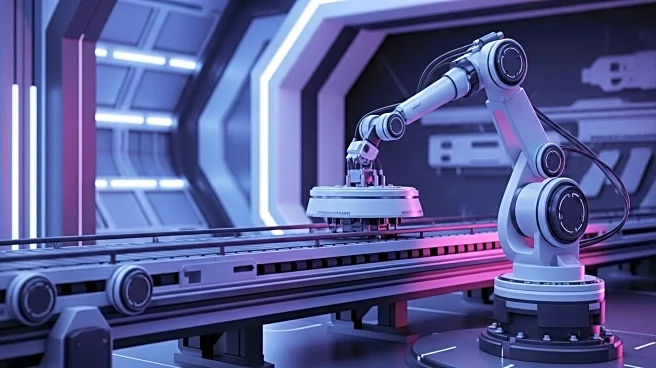What is the story about?
What's Happening?
Fabtech 2025 showcased the pervasive role of artificial intelligence (AI) in manufacturing, with AI-driven machinery and software prominently featured. Despite some companies expressing fatigue with AI hype, the technology continues to offer significant opportunities for optimizing operations and enhancing performance. Bryan Graiff from Armanino, a consulting and accounting firm, emphasized the potential for companies to achieve new efficiencies through strategic implementation of AI, particularly in back-office functions.
Why It's Important?
The integration of AI in manufacturing represents a transformative shift in how companies operate, offering potential for increased efficiency and productivity. As AI technologies evolve, they provide manufacturers with tools to streamline processes, reduce costs, and improve decision-making. This trend could lead to competitive advantages for companies that effectively leverage AI, impacting industry standards and practices. Stakeholders in the manufacturing sector, including workers and management, may need to adapt to these changes, influencing workforce dynamics and skill requirements.
What's Next?
As AI continues to permeate the manufacturing industry, companies may explore further applications and innovations to enhance their operations. This could lead to increased investment in AI technologies and partnerships with tech firms, driving advancements in the sector. Industry leaders and policymakers may need to address challenges related to AI adoption, such as workforce training and ethical considerations. The ongoing dialogue at events like Fabtech 2025 will likely shape future developments and strategies in manufacturing.
Beyond the Headlines
The widespread adoption of AI in manufacturing raises ethical and cultural questions about automation and its impact on employment. As companies integrate AI into their operations, they must consider the implications for workers and society, balancing technological advancement with social responsibility. This shift may influence corporate policies and practices, as businesses navigate the complexities of AI-driven change.















